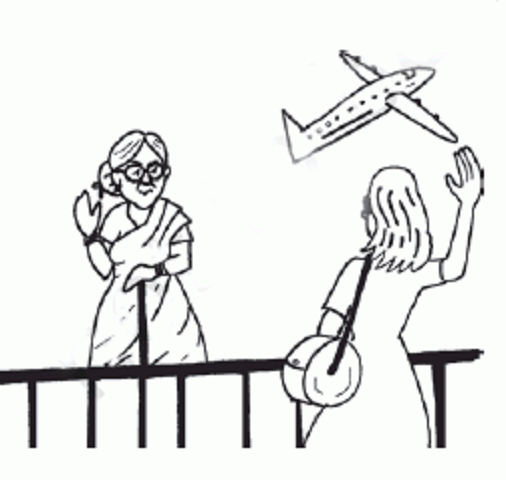My Mother at Sixty-six Summary Class 12 EnglishIntroductionThis lyric poem, titled My Mother at Sixty-six, is written by the prominent Indian poet Kamala Das under the pen name "Madhavikutty". This poem is part of the Flamingo textbook for Class 12 English. The poem illustrates various life stages and how old age is like a yellow light for death. Kamala Das was a feminist writer who wrote about the experiences and hardships of Indian women. Her essays, poems, and memoirs were not particularly on the theme of colonization (which was the main dilemma in the 20th century). Still, she has achieved success through her works, which were based on personal experiences. Her notable poetry collection consists of "Summer in Calcutta", "The Old Playhouse", and the poem "My mother at sixty-six", which is discussed in detail below. 
This poem deals with the helplessness that the young generation has to go through when they know they cannot do enough for their parents. The poet knew she should stay with her mother because she might not live for long. However, she couldn't show her concern for her mother's health. Old age can be a tough stage of life. At that age, older people are physically weak, and when their children leave them to pursue their dreams, they also have to fight their loneliness. The emotional pain of separation remains the same for all individuals at any stage of life. However, expressing anguish in front of others, especially our parents, gets difficult as we grow and become independent. And then, here comes a time we have to separate ourselves from others and appear to be strong. SummaryThe poem begins with the poet driving towards the airport from her home to Cochin. Her mother is sitting beside her. This is the time when the poet notices that her mother looks senile and feeble. Due to her pale skin or "ashen face" with open mouth, she already looks like a corpse. The poet wants to care for her mother at a time like this when she needs her. However, she shuts down these emotions and memories before she gets overwhelmed by them. The poet's love and affection for her mother are feelings that might prevent her from leaving. Therefore, she shifts her attention out of the car. Out of the window, the "young trees" and "sprinting children" remind her of another stage of life- childhood. Her mood shifts from melancholic to joyous. Childhood is the symbol of innocence and happiness when children are free from any responsibilities, and they don't need to leave their parents behind to follow their dreams. This instance reminded the poet of her own childhood when her mother didn't appear to be weak but young and healthy. By looking at the view of nature and the happy faces of kids, the poet was able to ignore her worst fear for a while. After the security check at the airport, she looked at her mother once again. This time, her mother's face looks like the "late winter's moon", and fear creeps into her. This fear is stated as a "childhood fear" because childhood is the stage when individuals are most vulnerable to the outside world. Therefore, the fear of losing their parents is always looming over them. This pain is familiar as the poet is always worried about her mother's health and life when she is not with her. She puts up a brave face in front of her mother and hides her worries so that their farewell can be remembered by both of them as happy memory. She does not want to make her mother cry by getting emotional in front of her. So, she smiles and, in the hope of seeing her mother again, says, "see you soon, Amma". She wants her mother to be happy and healthy again, just like she herself is, so she tries to be optimistic and leaves. MoralThe bond between the poet and her mother seems strong. The poet loves her mother so much, yet the separation is inescapable because now the poet has responsibilities and work. The themes of love and anxiety are followed throughout the poem. The mother might not have spoken anything in the poem, but we can see her through the poet's eyes. Now, their roles are reversed as she is supposed to take care of her mother and be there for her just like her mother did during her childhood. Simply put, this poem conveys the moral values of taking care of parents by their children as their parents did for their children in the beginning. |
 For Videos Join Our Youtube Channel: Join Now
For Videos Join Our Youtube Channel: Join Now
Feedback
- Send your Feedback to [email protected]
Help Others, Please Share









